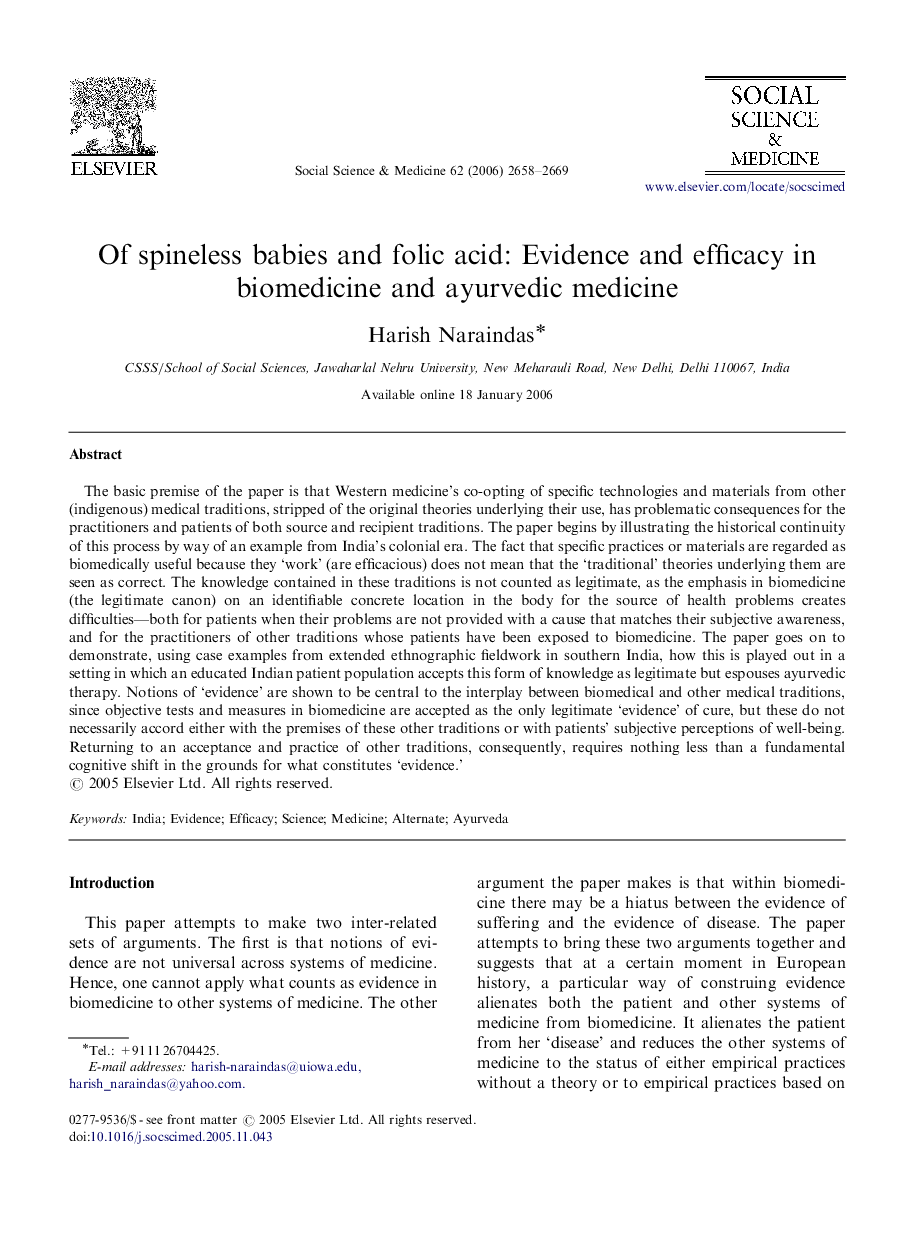| Article ID | Journal | Published Year | Pages | File Type |
|---|---|---|---|---|
| 954266 | Social Science & Medicine | 2006 | 12 Pages |
The basic premise of the paper is that Western medicine's co-opting of specific technologies and materials from other (indigenous) medical traditions, stripped of the original theories underlying their use, has problematic consequences for the practitioners and patients of both source and recipient traditions. The paper begins by illustrating the historical continuity of this process by way of an example from India's colonial era. The fact that specific practices or materials are regarded as biomedically useful because they ‘work’ (are efficacious) does not mean that the ‘traditional’ theories underlying them are seen as correct. The knowledge contained in these traditions is not counted as legitimate, as the emphasis in biomedicine (the legitimate canon) on an identifiable concrete location in the body for the source of health problems creates difficulties—both for patients when their problems are not provided with a cause that matches their subjective awareness, and for the practitioners of other traditions whose patients have been exposed to biomedicine. The paper goes on to demonstrate, using case examples from extended ethnographic fieldwork in southern India, how this is played out in a setting in which an educated Indian patient population accepts this form of knowledge as legitimate but espouses ayurvedic therapy. Notions of ‘evidence’ are shown to be central to the interplay between biomedical and other medical traditions, since objective tests and measures in biomedicine are accepted as the only legitimate ‘evidence’ of cure, but these do not necessarily accord either with the premises of these other traditions or with patients’ subjective perceptions of well-being. Returning to an acceptance and practice of other traditions, consequently, requires nothing less than a fundamental cognitive shift in the grounds for what constitutes ‘evidence.’
